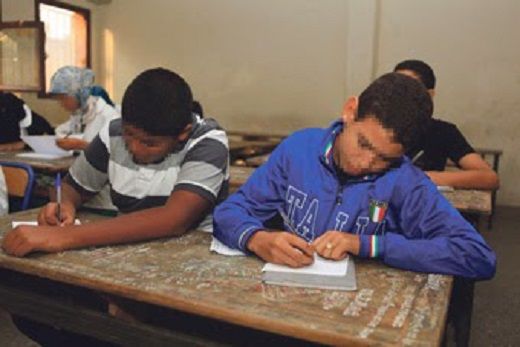
Education is a fundamental human right that should be accessible to all, regardless of their socio-economic background. Yet, in Morocco, over 300,000 students dropout of school each year, a disheartening reality that not only undermines the potential of these individuals but also violates their right to education. It is imperative that we address this issue urgently and comprehensively, taking into account the socio-economic factors that contribute to dropout rates and ensuring equal access to quality education for all children.
The recent findings by Morocco’s National Human Rights Council (CNDH) shed light on the critical nature of the school dropout problem. Poverty and students’ socio-economic backgrounds were identified as key factors influencing their decision to leave school prematurely. Rural areas and vulnerable communities bear the brunt of this issue, highlighting the need for targeted interventions to address educational disparities.
Moreover, the COVID-19 pandemic has exacerbated the situation, disrupting educational systems worldwide. In the 2020-21 school year, dropout rates increased by over 5%, further exacerbating the risk of students falling into the NEET category. Recognizing this crisis as a violation of children’s right to education, the CNDH’s call for action is not only timely but also vital for the future of these young individuals.
To effectively prevent student drop-out, a holistic approach is necessary, encompassing various dimensions. First and foremost, we must tackle the underlying socio-economic factors that contribute to dropout rates. This includes providing financial assistance and support to families in need, ensuring that economic circumstances do not hinder a child’s educational journey. Scholarships, grants, and targeted social welfare programs can play a pivotal role in reducing the financial burden on families and empowering students to remain in school.
Furthermore, addressing the quality of education is paramount. Students are more likely to stay in school if they find the learning experience engaging and relevant to their lives. Governments and educational institutions must prioritize curriculum reform, ensuring it is inclusive, practical, and aligned with the evolving needs of the job market. By offering diverse learning pathways, such as vocational and technical training, we can provide students with the skills they need to succeed and increase their motivation to stay in school.
In addition to these systemic changes, community engagement and parental involvement are essential components in preventing dropout. Building partnerships between schools, parents, and local communities can create a support network for students, fostering an environment that values education. Parental workshops, mentoring programs, and career guidance initiatives can bridge the gap between home and school, reinforcing the importance of education and encouraging students to persist in their studies.
Lastly, investing in teacher training and professional development is crucial. Well-trained and motivated teachers play a pivotal role in student retention. By equipping educators with the necessary tools and skills, they can create inclusive and supportive learning environments that cater to the diverse needs of their students. Additionally, counseling services within schools can provide students with emotional support, addressing any underlying issues that may hinder their academic progress.
Preventing student drop-out is not just a matter of improving educational outcomes; it is a human rights imperative. Morocco’s commitment, as expressed by the CNDH, to collaborate with relevant authorities, international partners, and civil society organizations is commendable. By developing a comprehensive plan that encompasses legal frameworks, financial support, curriculum reform, community engagement, and teacher training, we can create a system that empowers students, ensures their right to education, and paves the way for a brighter future for all. It is time to turn the tide on student drop-out and invest in the potential of every child, thereby ensuring the fulfillment of their fundamental human rights.


